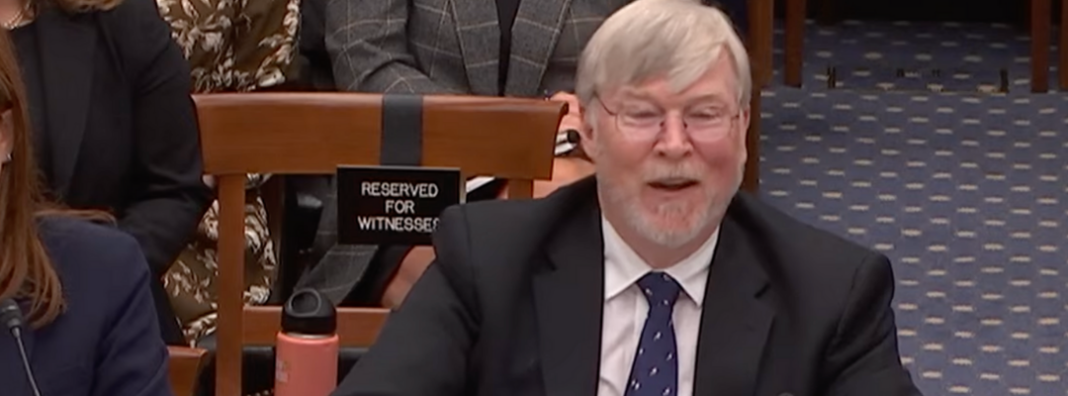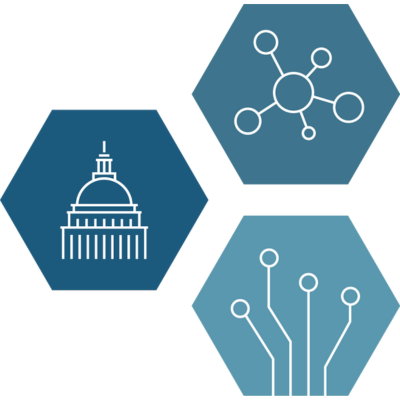
James Dunstan, CGO Contributing Scholar and General Counsel at TechFreedom, testified before the House Committee on Science, Space, and Technology on July 13, 2023. The hearing, titled “Continuing U.S. Leadership in Commercial Space at Home and Abroad,” brought together policymakers and experts to discuss the state of the U.S. commercial space industry and considerations for commercial space legislation.
In his written testimony (reproduced below), Dunstan outlined how the current patchwork regulatory environment raises the possibility that future court reviews of regulatory actions may result in the determination that the agencies were never initially granted the fundamental regulatory authority by Congress. Dunstan provided insights on the balancing act Congress must play,
In the same way that Earth sits in the “Goldilocks” zone of our solar system, not too close to the sun, but not too far away, Congress’s task is to find a balance on the continuum between “permissionless innovation” (where nearly anything goes), and the “precautionary principle” (where the government must micromanage and approve every activity by U.S. citizens in space).
Testimony of James E. Dunstan1James E. Dunstan serves as General Counsel to Washington, DC-based nonpartisan think tank TechFreedom. At TechFreedom his portfolio includes outer space and telecommunications law and policy. He is also the founder of Mobius Legal Group, PLLC, where he represents a number of space companies, and has assisted them for four decades in navigating the complex regulatory landscape they face in seeking to do innovative things in space. Jim wrote and helped negotiate the lease for the Russian Mir space station, helped negotiate to shoot the first television commercial aboard the ISS, and worked with NASA and several commercial sponsors to have the first pitch of the 2002 World Series thrown out from the ISS. Jim was the co-author of the Virginia Spaceflight Liability and Immunity Act, as well as co-authoring the Virginia “Zero-G/Zero tax” statute. Jim is the 1978 Harry S. Truman Scholar from the State of Arizona, a graduate of Claremont McKenna College, and the Georgetown University Law Center. While at Georgetown in 1982, he co-founded the Georgetown Space Law Group, the first law student organization in the United States focused exclusively on issues related to outer space law.
Testimony before the US Congress House Committee on Science, Space, and Technology
July 13, 2023
Chairman Lucas, Ranking Member Lofgren, Members of the Committee, thank you for the opportunity to testify today. I hope that this testimony, along with my recently published paper on regulating commercial outer space activities, will assist Congress as it considers comprehensive space legislation. The testimony I provide today is my own and reflects my personal opinions, and not the position of any organization or company.
Space is heating up. Not in terms of the environment, but in terms of business activities. Advances in space technology, especially the advent of cheaper access to space created by space entrepreneurs (with strategic funding from the United States government, of course), have opened entirely new opportunities for U.S. businesses to be the catalyst for the creation of a robust cis-lunar economy. According to the Space Foundation, the world space economy was valued at almost $470 billion in 2021, and according to the U.S. Bureau of Economic Analysis, the U.S. portion of that economy generates $211 billion in gross output per year.
And space entrepreneurs are just getting started. The legal and policy questions that commercial space activities present, frankly, I thought I’d be working on 40 years ago when I graduated from law school, not what we are finally dealing with in 2023.
The first problem is that we do not have a comprehensive regulatory approach to commercial activities in space. We’ve never had a National Space Act. The rules of the road are cobbled together from various agency enabling statutes, some with regulatory underpinnings that date back almost 150 years. The result, as I discuss in my paper, is “gaps, overlaps, and stovepipes.” Simply put, space is regulated by several different agencies, none of which were originally sanctioned by Congress to regulate in outer space. This includes the Federal Communications Commission, the Federal Aviation Administration, the Department of Commerce, NASA, and the Department of Defense, all of which currently have a hand in directing, if not directly regulating, outer space commerce.
The second problem is that following the Supreme Court’s decision in West Virginia v. EPA, it is clear that agencies may no longer regulate based on vague terms like “the public interest.” Congress [quote] “does not alter the fundamental details of a regulatory scheme in vague terms or ancillary provisions—it does not . . . hide elephants in mouseholes.”2Whitman v. American Trucking Assns., Inc., 531 U.S. 457, 468 (2001). [end quote]. The current patchwork regulatory environment is a labyrinth of mouseholes that new entrants must traverse. Great for me as a practicing space lawyer, but highly dangerous for us as a country. For there is a very real danger that courts, when asked to review regulatory actions in the future, may well conclude that Congress never provided the basic regulatory authority to those agencies in the first place.
The stakes are sky high . . . pun fully intended. Space is inherently international, and if we do not provide a practical regulatory system that can quickly and economically authorize and supervise the activities of U.S. nationals in space (what I call a frictionless regulatory system), two things will happen:
First, and we’re already seeing this, U.S. domestic companies will simply move offshore and find a country that will quickly and cheaply grant them authorization for their outer space activities in exchange for license fees or taxes (fees and taxes that are thus pulled out of the U.S. economy).
Second, the existing regulatory scheme, and any future regulatory scheme which is characterized by high degrees of friction, slows down the U.S. space economy, and thus advances the interests of our adversaries, including China, who do not share our democratic principles, and who wish to export their ideals into space, to our direct detriment.
What should a National Space Act look like? After West Virginia v. EPA, I think Congress needs to do four things:
- Congress needs to assign clear regulatory authority to an agency or small set of agencies with minimal gaps and overlaps;
- Congress must provide explicit rulemaking authority to that agency or agencies to create the rules of the road for space activities in the 21st century;
- Congress must provide explicit enforcement powers to its chosen space agencies so that we have a “cop on the beat” to ensure compliance both with domestic law and the United States’ obligations under international law; and
- Understanding that some overlap is inevitable, and that there must be interagency coordination, ensure that the coordination process is as transparent as possible.
Understand that I am not here advocating for Congress to overregulate space activities. Overregulation introduces levels of friction into the regulatory system that could accelerate flight overseas and play directly into the interests of our adversaries.
Nor am I advocating for a totally “hands-off” approach to space activities. The dangers to the “commons” of outer space require us to be good stewards of the cis-lunar system.
In the same way that Earth sits in the “Goldilocks” zone of our solar system, not too close to the sun, but not too far away, Congress’s task is to find a balance on the continuum between “permissionless innovation” (where nearly anything goes), and the “precautionary principle” (where the government must micromanage and approve every activity by U.S. citizens in space).
This is a hard, but necessary, task if we wish to continue to be leaders in the cislunar economy going forward.
I hope that this committee will consider introducing into the formal record of this hearing my paper entitled: “Regulating Outer Space: Of Gaps, Overlaps, and Stovepipes.” I welcome questions and the dialog on these important issues. Thank you.


 House Committee on Science, Space, and Technology
House Committee on Science, Space, and Technology